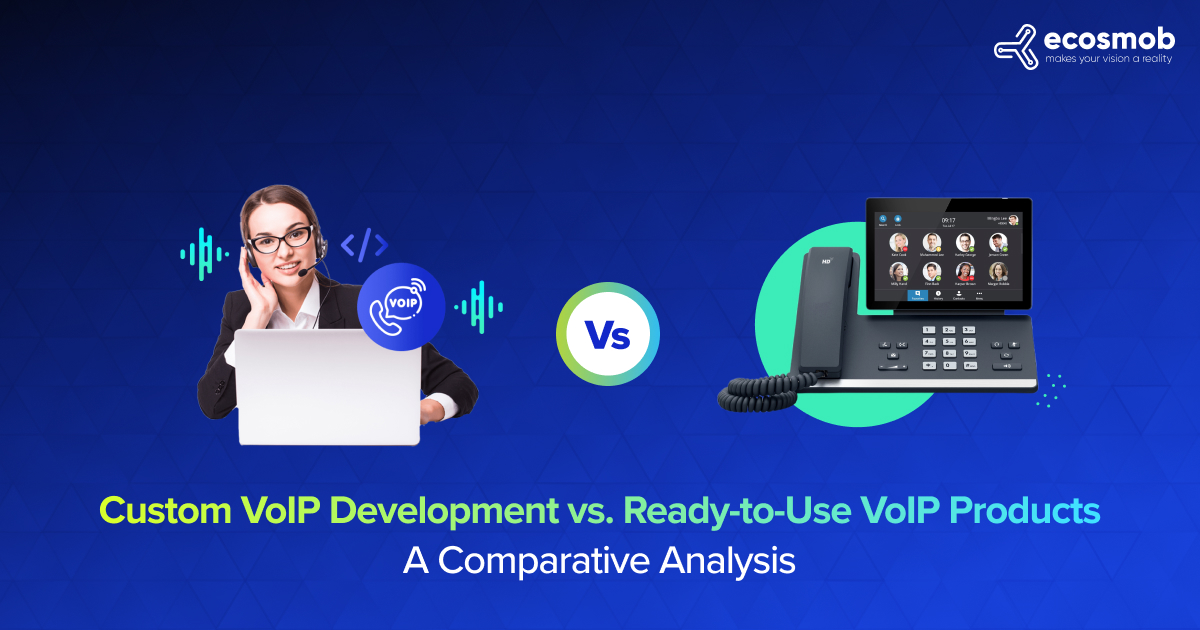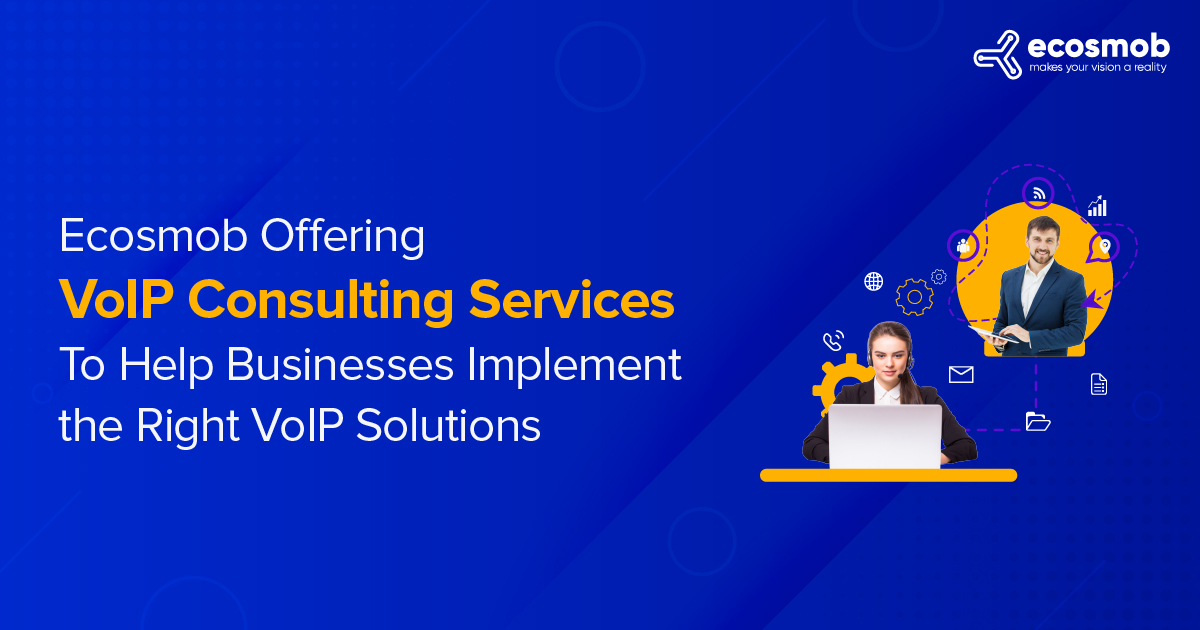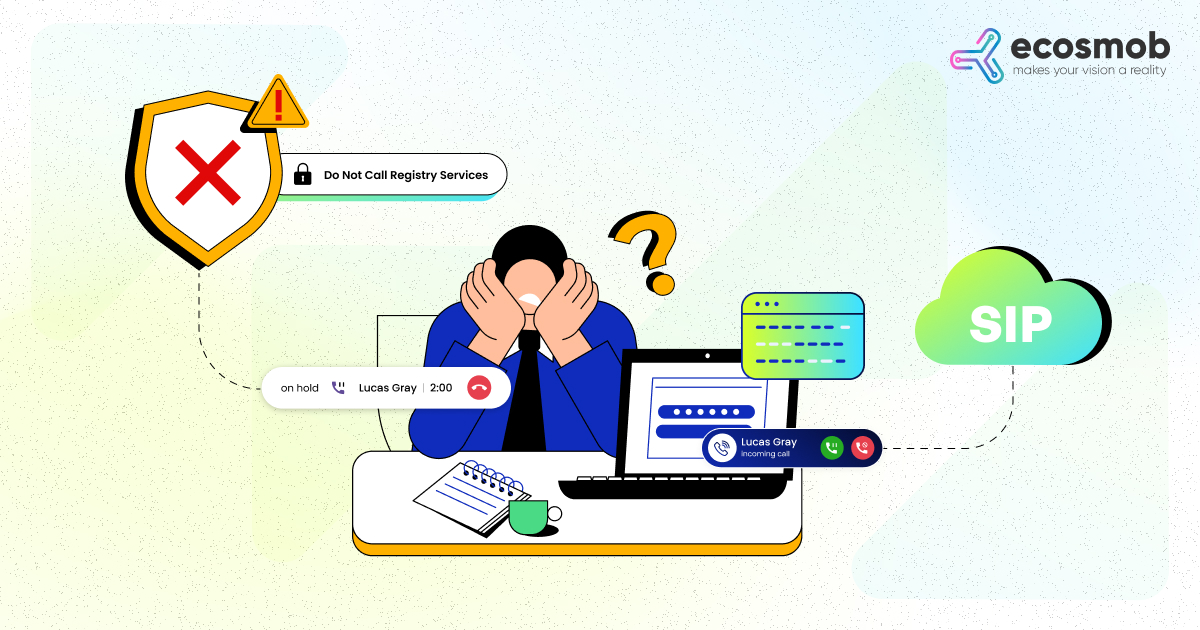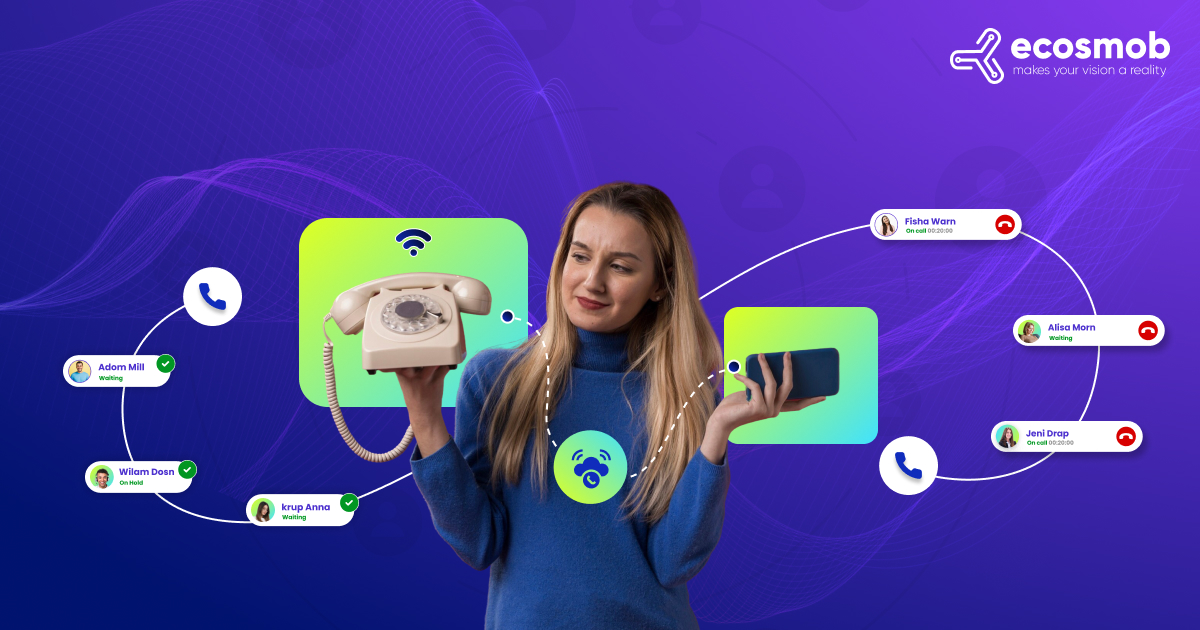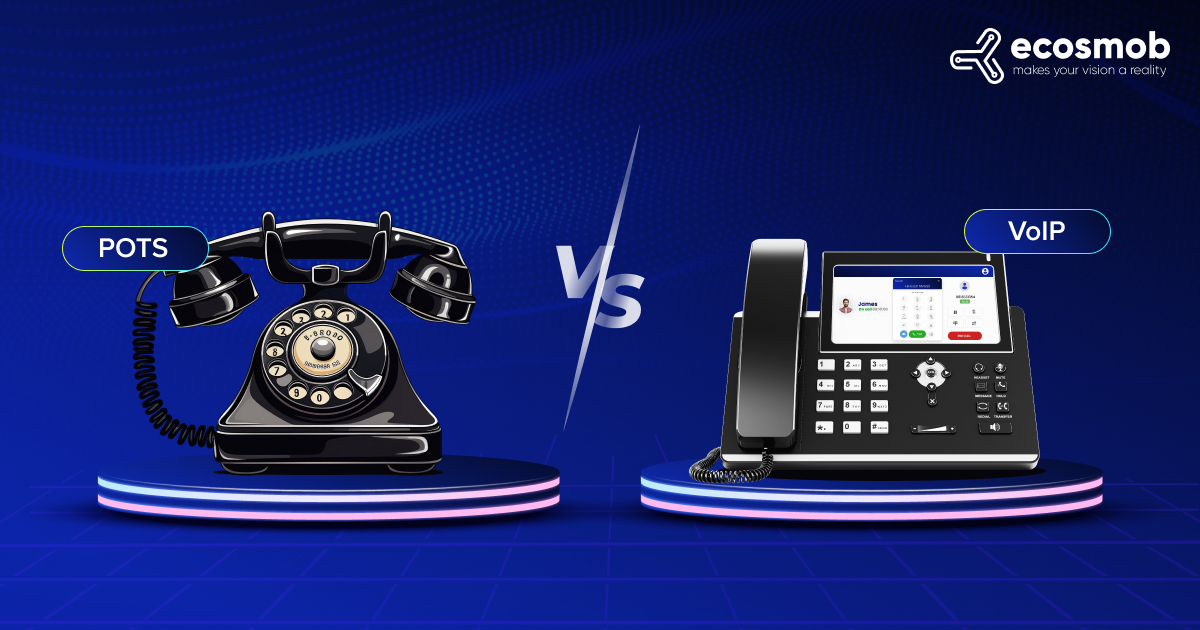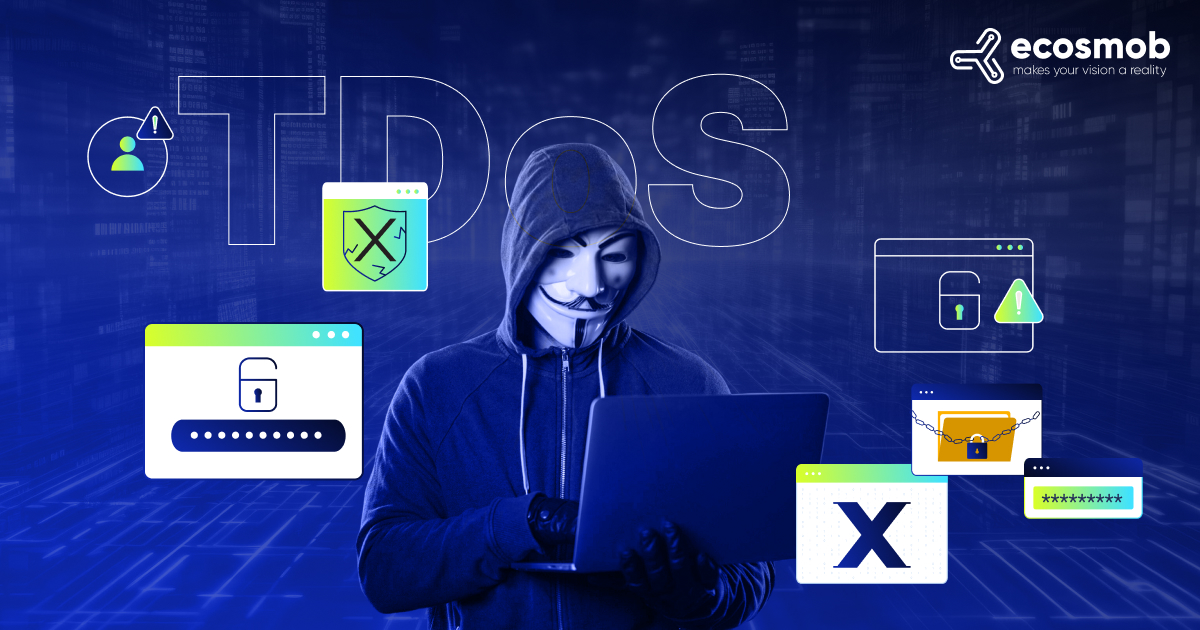QUICK SUMMARY
Explore the best cloud telephony platforms of 2025 to improve your business communication. This guide highlights top providers, key features, pricing, pros, and cons, helping you choose the right solution to boost your business’s efficiency, flexibility, and scalability.
In 2025, cloud telephony is not just a smart choice; it’s essential for businesses that want to stay competitive. Transitioning from traditional phone systems to cloud telephony solutions means embracing flexibility, scalability, and many features that can truly transform your communication strategy.
But with so many providers, how do you choose the right one? We’ve broken down the best cloud telephony solutions of the year to help you make the best decision.
Before we start, let’s first see why a cloud telephony solution is important for your business.
Don’t let your communication tools hold you back–get one customized that can help you grow!
Why Cloud Telephony Solutions Are Essential for Modern Businesses in the USA?
Switching to a cloud telephony solution isn’t just about keeping up with the latest technology trends—it’s about future-proofing your business. Traditional telephony systems are limited by physical infrastructure, high maintenance costs, and scalability challenges.
In contrast, cloud telephony platforms offer unparalleled flexibility, helping your business scale without significant overhead. They also allow unified communication across different channels, which means every interaction whether through voice, messaging, or video works smoothly and remains consistent.
With a cloud telephony system, your team can work from anywhere, ensuring seamless communication in the office, remotely, or on the go. Advanced features like AI-driven call routing, real-time analytics, and integration with CRM systems help you optimize every customer interaction, improving efficiency and customer satisfaction.
Plus, with enhanced security measures, you can be assured that your communications are protected against threats. In short, cloud telephony isn’t just another version of a phone system—it’s a strategic tool that can help your business grow in this competitive landscape.
With all these advantages in mind, let’s dive into the top cloud telephony providers of 2025 that can take your business communication to the next level.
What Are the Top Cloud Telephony Solutions of 2025 in the USA?
Here is the list of the top cloud telephony providers of 2025, based on what they are best for, their pros and cons, key features, and pricing.
1. Ecosmob Technologies
Ecosmob Technologies is leading this list for its highly customizable solutions that meet your business’s specific needs. With over 17 years of expertise in real-time communication solutions, Ecosmob goes beyond offering standard services by crafting solutions tailored to your growth and operational demands. Whether it’s AI-driven insights, unified communications, or seamless CRM integration, Ecosmob delivers a comprehensive solution that’s both robust and adaptable.
- Best For: Businesses that need a custom-built, scalable communication solution.
- Pros: Exceptional customization, superior customer support, advanced integration options.
- Cons: The customization process can extend the setup time.
- Key Features include unified communications, AI-driven analytics, advanced security measures, seamless CRM integrations, video conferencing, and call recording.
- Pricing: Custom pricing based on your specific business requirements.
2. TeleCMI
TeleCMI offers a versatile cloud telephony solution focusing on global connectivity through multiple data centers and guarantees 99.99% uptime. It seamlessly integrates with more than 70+ CRM systems. Their AI-powered platform provides advanced features for modern businesses looking to streamline their operations and improve customer interactions.
- Best For Businesses seeking robust cloud telephony services call management features, and seamless CRM integration.
- Pros: Quick setup with no hidden fees, global reach with HD call quality, and advanced analytics for productivity enhancement.
- Cons: Complex features might require initial adaptation, especially for businesses new to cloud telephony.
- Key Features: intelligent call management with call whispering, barging, and sticky agents, multi-level IVR, custom greetings, time-based routing, real-time analytics, and Mobile and desktop app compatibility for flexibility.
- Pricing: Customizable plans starting with unlimited inbound and outbound calling options, customizable to enterprise needs.
3. Vonage Business
Vonage Business offers a flexible and innovative cloud telephony platform that can meet the diverse needs of modern businesses. With a strong focus on adaptability, Vonage supports various features and integrations, making it a great choice for companies looking to optimize their communication systems through cloud-based telephony solutions.
- Best For: Companies that need a flexible and versatile cloud telephony service.
- Pros: Strong integration capabilities, reliable service, flexible pricing plans.
- Cons: The initial setup can be complex, and customer support can be inconsistent.
- Key Features: Mobile and desktop apps, CRM integration, call recording, and video conferencing.
- Pricing: Starts at $19.99 per user per month.
4. Dialpad
Dialpad leverages AI to take cloud telephony to the next level, offering a platform that enhances customer interactions and boosts agent productivity. With real-time coaching insights and dynamic call scripts, Dialpad is ideal for businesses that want to integrate cutting-edge technology into their cloud telephony platform.
- Best For: Companies looking to leverage AI for enhanced communication.
- Pros: Pioneering AI capabilities, dynamic call scripts, and advanced analytics.
- Cons: The AI features can be overwhelming for businesses new to this technology, and higher enterprise pricing.
- Key Features: AI-powered coaching, dynamic call scripts, next-generation analytics, and CRM integrations.
- Pricing: Starts at $15 per user per month for the basic plan; custom pricing for advanced features.
5. Nextiva
Nextiva is a trusted name in the cloud telephony services market. It offers a comprehensive cloud telephony platform that caters to businesses of all sizes. With a strong emphasis on customer service and reliability, Nextiva provides a range of features that help streamline communication and improve operational efficiency.
- Best For: Businesses that prioritize customer service and reliability.
- Pros: Reliable service, strong customer support, user-friendly interface.
- Cons: Limited international calling options can be expensive for smaller businesses.
- Key Features: Auto-attendant, voicemail to email, call analytics, team messaging, and video conferencing.
- Pricing: Starts at $21.95 per user per month.
6. Exotel
Exotel offers a cloud telephony solution that excels at providing seamless customer engagement through omnichannel call-handling functions. This solution is particularly beneficial for businesses looking to integrate various communication channels into one unified cloud telephony platform.
- Best For: Businesses focused on omnichannel customer engagement.
- Pros: Powerful inbound call management, strong integration with popular tools, real-time performance monitoring.
- Cons: It may require third-party software setup and occasional issues with call quality.
- Key Features: Smart call routing, IVR, call recording, CRM integration, and real-time analytics.
- Pricing: Competitive pricing tailored to your business needs.
7. Twilio
Twilio is all about flexibility. It offers a cloud telephony platform that allows businesses to build their own communication solutions tailored to specific needs. With powerful APIs and SDKs, Twilio gives you the tools to create a communication system that integrates perfectly with your existing infrastructure, making it a top choice among cloud telephony providers.
- Best For: Businesses that need a highly customizable and flexible communication solution.
- Pros: Highly customizable, robust API and SDK support, flexible pricing options.
- Cons: Complex setup, requires API knowledge and development efforts.
- Key Features include interactive Voice Response (IVR), customizable call routing, reporting and analytics, and CRM integrations.
- Pricing: Starts at $1.00 per active user/hour; custom pricing for enterprise solutions.
8. Grasshopper
Grasshopper is designed with simplicity in mind. It offers straightforward cloud telephony services that are perfect for entrepreneurs and small businesses. It provides essential features without the complexity, making it easy to set up and use.
- Best For: Entrepreneurs and small businesses looking for an easy-to-use cloud telephony solution.
- Pros: Easy setup, affordable pricing, mobile app integration.
- Cons: Limited advanced features.
- Key Features: Virtual phone numbers, call forwarding, voicemail transcription, and call handling.
- Pricing: Starts at $29 per month.
9. 8×8
8×8 is a cloud telephony software in the US known for its global reach and strong security features. It’s an excellent choice for international businesses requiring a reliable, secure communication platform supporting global operations. With its cloud calling services and advanced security measures, 8×8 provides the ideal solution for cloud telephony services worldwide.
- Best For: Businesses with international operations that need strong security.
- Pros: Strong security features, global reach, excellent customer support.
- Cons: Higher pricing for advanced features and occasional interface issues.
- Key Features: Video conferencing, team messaging, call center solutions, and advanced security measures.
- Pricing: Starts at $12 per user per month.
10. Ozonetel
Ozonetel is a robust cloud telephony platform known for its powerful contact center solutions. It’s particularly favored by businesses that manage large customer interactions and need a reliable, feature-rich cloud telephony solution. Ozonetel’s platform includes advanced features like intelligent call routing, real-time analytics, and seamless CRM integrations.
- Best For: Managing large volumes of customer interactions efficiently.
- Pros: Advanced call management features, excellent CRM integrations, and strong analytics capabilities.
- Cons: It may require some technical expertise for optimal use.
- Key Features: smart call routing, real-time analytics, automated call recordings, IVR customization, and CRM integration.
- Pricing: Custom pricing based on usage and specific business needs.
What to Consider Before Choosing Cloud Telephony Solutions?
Before considering a cloud telephony solution, there are a few critical factors to consider:
- Scalability: The solution must be able to scale with your growth. Can it handle increased call volumes as your team expands? Does it offer flexibility in terms of adding or removing features as needed? Scalability is essential in selecting the right cloud-based telephony solutions.
- Integration: How well can the cloud telephony solution integrate with your existing systems? Seamless integration with CRM tools, email platforms, and other business applications is essential for smooth operations.
- Security: Data security should be a top priority. Look for cloud telephony providers that offer robust encryption, secure data storage, and regular updates to protect against potential threats. The best cloud telephony companies will prioritize your data’s safety.
- Support: Consider the level of customer support they can provide. Will you have access to support 24/7? How responsive is the provider to issues or customization requests? A solid support system is crucial when choosing the best cloud telephony platform.
- Cost: While cost is always a factor, it’s crucial to balance the cost with the features and benefits offered. Note both the upfront costs and any ongoing fees.
- Ease of Use: The system should be user-friendly and have an intuitive interface that your team can quickly learn and navigate. Ensure the cloud telephony software you choose is easy to set up and use for long-term efficiency.
Choosing the right cloud telephony solution can feel overwhelming, but focusing on your business’s needs is key. Whether you’re looking for advanced features, seamless integration, or a straightforward, reliable system, these top providers will have something to offer.
Take the time to assess your requirements, consider your budget, and select the solution that best aligns with your business goals.
If you’re looking to improve your business communication, Ecosmob Technologies is a great choice. Our cloud telephony solutions are flexible, easy to use, and customizable to fit your needs. With excellent customer support and smart features like AI insights and easy CRM integration, we make things simple for you.
Contact us today.
Secure, scalable, and tailored for you–that’s the phone system you deserve!
FAQs
Cloud telephony moves your business phone system to the Internet. It helps you have advanced features like AI analytics, remote access, and seamless integrations with other business tools. Cloud telephony operates over the Internet, offering flexibility, scalability, and advanced features like AI-driven analytics. Traditional systems rely on physical infrastructure. Cloud telephony solutions can have secure data storage, strong encryption, and regular security updates to protect your communications. Many cloud telephony solutions have failover protocols or backup options to ensure continuity, even during internet outages. There can be. It’s important to clarify any potential additional costs like advanced features or premium support, with the provider.What is cloud telephony?
What is the main difference between cloud telephony and traditional phone systems?
How secure is cloud telephony?
What happens if there is an internet outage?



